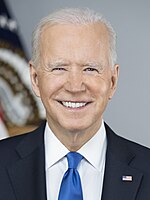
Photo from wikipedia
Local elections are held every 3 years in NZ for District Health Boards (DHB). The public has low capability to scrutinise candidates for their knowledge/experience in public health governance. As… Click to show full abstract
Local elections are held every 3 years in NZ for District Health Boards (DHB). The public has low capability to scrutinise candidates for their knowledge/experience in public health governance. As a result, there is low voting turn-out for elections. So, 3 PHA branches developed scorecards for 2019 candidates. Our aims addressed 3 problems: 1. How to raise public awareness about local DHB elections 2. How to engage voters and provide them with information about candidates from a public health perspective 3.Can we encourage candidates to discuss public health issues/ preventative measures publicly. We hoped to promote democracy by increasing informed voter turnout. Scorecards were based on candidates' responses to a survey with 3 dimensions: alignment with public health values; health sector governance experience; views on a specific public health issue (water fluoridation). Survey responses were scored by panels of branch members. Southern branch sent the survey to 28 DHB candidates across 2 DHBs, and 24 replied in time. Wellington branch sent it to 23 CCDHB candidates and 16 replied in time. Canterbury's response rate was just over 50%, 11 of 21 surveys were returned. We produced scorecards for results in formats for printing and sharing online. We shared them on PHA's website, social media and featured them in the e-newsletter. Each branch launched them at local Meet the DHB Candidate events where hundreds of paper copies were distributed. There was good online interest in the scorecards: 3453 previews, 287 downloads for further printing/distribution. Many candidates committed, if elected, to policy solutions presented them at our events. There was significant increase (684 in Southern, 698 in Wellington, 2006 in Canterbury) in DHB voter turnout in 2019, compared to last election with no scorecards. Not all top-scoring candidates were subsequently elected onto respective DHBs, but for Wellington and Southland all elected had high scores. PHANZ plays a role in supporting NZ democracy by filling a gap in public information about election candidates, whether they are fit for purpose when scrutinised through the public health lens. Election Scorecard are effective for raising public awareness, providing scrutiny of the candidates from a public health perspective, encouraging candidates to consider public health issues.
Journal Title: European Journal of Public Health
Year Published: 2020
Link to full text (if available)
Share on Social Media: Sign Up to like & get
recommendations!